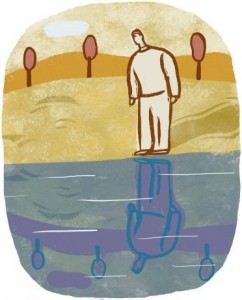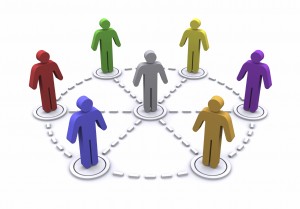Home, Four Years On
by BONZO, HSM Editor
Home’s open beta is now four years old. It’s quite a coincidence that, on a keyboard, the number 4 coincides with the $ symbol. Home is the most expensive entertainment application I have ever had, and continue to play. It is also the longest platform I have ever been involved in. In the long-ago days of MySpace I was semi-involved; I had a MySpace account which I created and got involved with for a minute to socialize with friends, but quickly abandoned. I jumped on the bandwagon with Facebook, and quickly abandoned that, too.
Here’s the problem with those social networks as they compare to Home. MySpace was all about sharing, and sharing personal information. I respected the platform for it’s marketing benefits, and continue to use it as such, even to its current evolved state. The same can be said of Facebook; I respect it as marketing tool, but I don’t use it as a social network. I am uncomfortable with that level of self exposure; my personality is more of an introvert, and while some people believe web social networks are better for introverts, that is not necessarily the case. It certainly isn’t for me. I had 19 friends on my personal Facebook account before I deactivated it, and all but a few I knew personally.
 It’s also predominantly a very passive experience. You observe and occasionally play some social games, but what you do mostly is post images, thoughts, videos and view the postings of others. There is a benefit to that function, but for a personal use it just wasn’t for me. Home allowed for so much from my perspective, even with its limitations. I shared a very personal perspective in one of the first articles I ever wrote for HSM, with “A Home Away from Home”. Since then I have written over a hundred entries to this fan blog, not because I am such a huge fan of Home, as I — believe it or not — consider myself more of a casual than a hardcore Home user. But Home appeals to many of us for different reasons, and for myself personally it is a way to connect in a more interactive experience than a passive form of communication. It differs from multiplayer games which involve tasks, and missions and fighting or collectively creating. It demands nothing from us, but offers the opportunity for so much.
It’s also predominantly a very passive experience. You observe and occasionally play some social games, but what you do mostly is post images, thoughts, videos and view the postings of others. There is a benefit to that function, but for a personal use it just wasn’t for me. Home allowed for so much from my perspective, even with its limitations. I shared a very personal perspective in one of the first articles I ever wrote for HSM, with “A Home Away from Home”. Since then I have written over a hundred entries to this fan blog, not because I am such a huge fan of Home, as I — believe it or not — consider myself more of a casual than a hardcore Home user. But Home appeals to many of us for different reasons, and for myself personally it is a way to connect in a more interactive experience than a passive form of communication. It differs from multiplayer games which involve tasks, and missions and fighting or collectively creating. It demands nothing from us, but offers the opportunity for so much.
Virtual worlds have intrigued me since since the first time I saw Tron, and since then many other shows and movies like ReBoot, Brainstorm and The Matrix have expanded on that. The first virtual world platform I tried was Second Life, but it didn’t appeal to me as much because aesthetically it didn’t look that good and at least at the beginning it was so difficult to run it on my computer that it made it more of a hassle than it was worth.
 Home wasn’t and isn’t perfect, but there is nothing else like it anywhere. I’ve been more involved in Home and its fan groups like this publication than I have ever been in anything video game related. But Home itself is only a platform; it does nothing but provide the tools and the means. It is the community which helps to shape it and helps to hold us together.
Home wasn’t and isn’t perfect, but there is nothing else like it anywhere. I’ve been more involved in Home and its fan groups like this publication than I have ever been in anything video game related. But Home itself is only a platform; it does nothing but provide the tools and the means. It is the community which helps to shape it and helps to hold us together.
Consider why every year there is a new version of a first-person shooter, or even a franchise I happen to love like Assassin’s Creed. The social aspect of these games is very limited: a few variations of a map with several options for objectives, and you connect with friends to work together or against each other. These games have their place; it’s fun to play up the one-up competitiveness of these games against friends or work collaboratively against others. And some of my friends and I have had a blast with virtual grudges against other gamers. But when you show up to play, you are committed to playing that game and that game alone.
 Home is a hangout. Home is a social interaction. One of the most ironic criticisms that has been thrown about by detractors is that Home users use Home because we can’t socialize in real life. Somehow they tend to forget it still takes some social skills to socialize, regardless of what platform you use. And while I am admittedly an introvert, don’t confuse that for antisocial; it just means I am more selective about who I do socialize with. In real life that has translated to a short list of longer and more connected friendships than a huge number of casual acquaintances.
Home is a hangout. Home is a social interaction. One of the most ironic criticisms that has been thrown about by detractors is that Home users use Home because we can’t socialize in real life. Somehow they tend to forget it still takes some social skills to socialize, regardless of what platform you use. And while I am admittedly an introvert, don’t confuse that for antisocial; it just means I am more selective about who I do socialize with. In real life that has translated to a short list of longer and more connected friendships than a huge number of casual acquaintances.
I value friendships, even those made in the virtual landscape of Home. This is why Home has set itself apart from other platforms, because Home is what you make of it, and even when you get bored with what the platform itself offers it is the community that brings you back. The community of other like-minded individuals, who even if you’ve never met in person can have the same impact as the relationships culminated in the real world.
We don’t grow individually, but in tandem and by the influence of the company we keep. We teach and learn from each other, we grow and grow and mature by sharing experiences together, and sometimes the communities just offer us a way to discover a little about ourselves. That is why this anniversary really isn’t about Home itself, but for me it is about looking back on the communities that have been built, broken down, the ones I have joined, and the ones I have left, and ultimately about who I am today not because of Home, but because of the communities it has introduced me to.



 Twitter
Twitter
I really enjoyed the article. Also enjoy getting others perspective on the creature that is home.
Whether the naysayers believe it or not doesn’t make it any less true, Home is a social network, not a gaming platform. It is the social side of things that truly drives much of what is sold here, people buy clothing,furniture, and various social commodities because they love to decorate and show it to their friends or they love to dress up and have partied at their clubs and decorated personal spaces.
Home pulls at the creative streak in those who become involved, and it is this social side that is what makes people stay here for the long haul.
Nice read Bonzo.